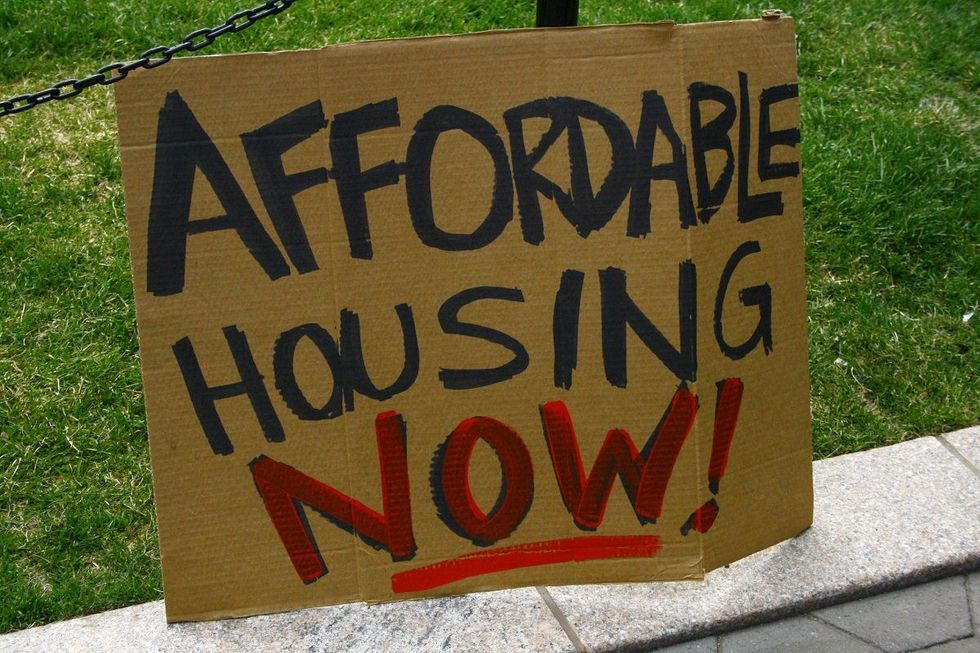
While there’s little question that Toronto is facing a housing affordability crisis, many of us are still left wondering who’s to blame?
Who is at fault for sky-high home prices, ever-shrinking condo units, high rents, low vacancies, resale bidding wars, and the myriad of other symptoms of a sick housing sector?
Does responsibility lie with landowners, the developers, the realtors, the bankers, or with you and me —the end user — who has gladly borrowed beyond our means, assumed a healthy dose of FOMO and dove into the deep end of the housing pool, without a lifejacket or lifeguard in sight.
READ: Home Equity Spending Sprees: How HELOCs And Record Debt Are Threatening A Financial Crisis
Blame for today’s crisis has always been difficult to pinpoint; so many factors are contributing to the current challenges its been hard to know just who's at fault.
Or it was. Until last month.
That’s when the City of Toronto admitted they are responsible for the affordability crisis.
Yep.
A public mea culpa. An extraordinary plea of guilt. An official decree from the City Manager himself confessing to Council’s responsibility for the state of the housing market.
Sort of. Let me explain.

READ: New Toronto Housing Initiative Aims To Deliver 10,000 Residential Units
An effort towards city building that would, according to a memo from the City Manager to the Mayor’s Executive Committee, seek to stimulate “the creation of complete communities with a range of new mixed-income… providing the opportunity for Toronto residents to live in these new mixed-income developments.”
Council debated the initiative late last month, voting 22 to 4 to approve the plan to develop an estimated 3,700 “affordable” homes.
Among the recommendations towards achieving this goal, the City Manager recommended that council and planning staff expedite Official Plan Amendments and Zoning By-law Amendments, offer exemptions on development charges, waive all planning and building fees and parkland dedication charges.
In other words, among 35+ recommendations for how the city itself is going ensure the creation of affordable housing on 11 of its own properties, it has to avoid its own planning regime and escape its own fees just to get it done!
But what about the development of new housing on lands not held by the city?
READ: 4 Toronto Real Estate Market Predictions For 2019
What about the development applications which don’t get the benefit from multiple strategic recommendations from the City Manager, or political leverage from the Executive Committee?
What about the market projects that are just trying to create urban housing options that people can afford to buy?
Sorry folks, but private developers shouldn't hold their breath expecting to see their fees waived and their planning process expedited.
Those building market housing will just have to carry on and continue to operate in a system in which development applications take upwards of two to three years and development charges, fees and levies escalate severely and precipitously, watching powerlessly as development costs spiral.
READ: City Wants More Money From Condo Developers, But Buyers Will Pay For It
But while the development industry will bear these up-front costs, don’t kid yourself; eventually, it’s the end user that pays the price for every municipal dollar spent and every delay in the process for projects not considered part of the City of Toronto's Housing Now plan.
But it's not Housing Now that this market needs most, rather a city willing to take Responsibility Now.
Responsibility for its role in a housing system made more expensive, and responsibility for the solutions only it can offer towards creating a more affordable market for all.
While we don’t need the city to take all the blame for the housing crisis, we do need them to recognize the role they play in the problem… and in the solution.





















